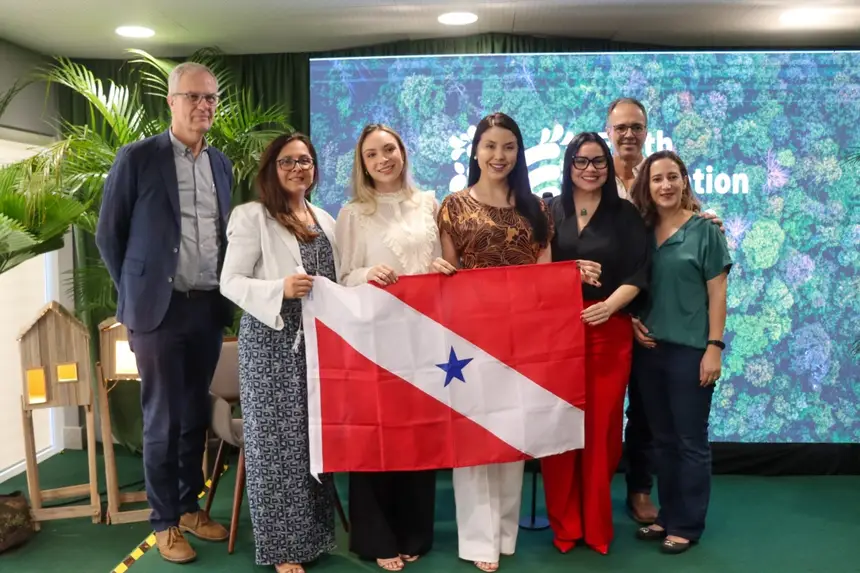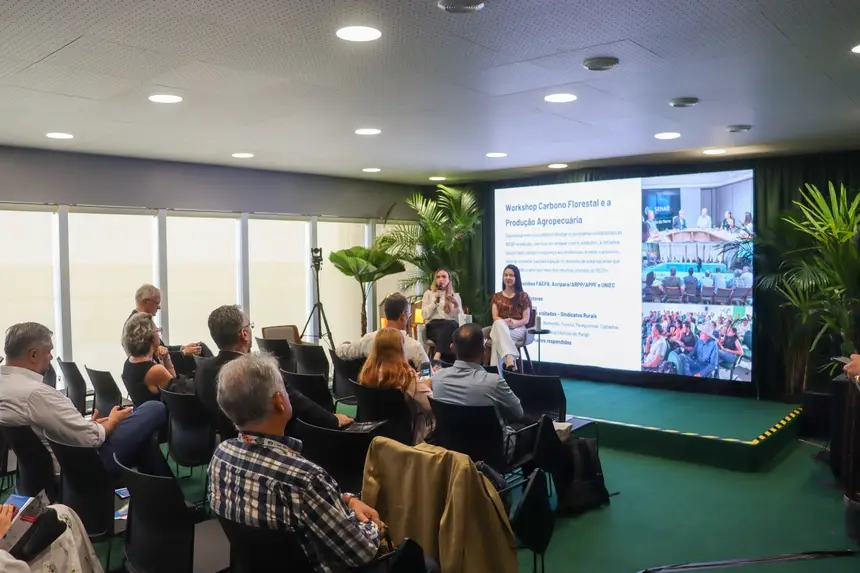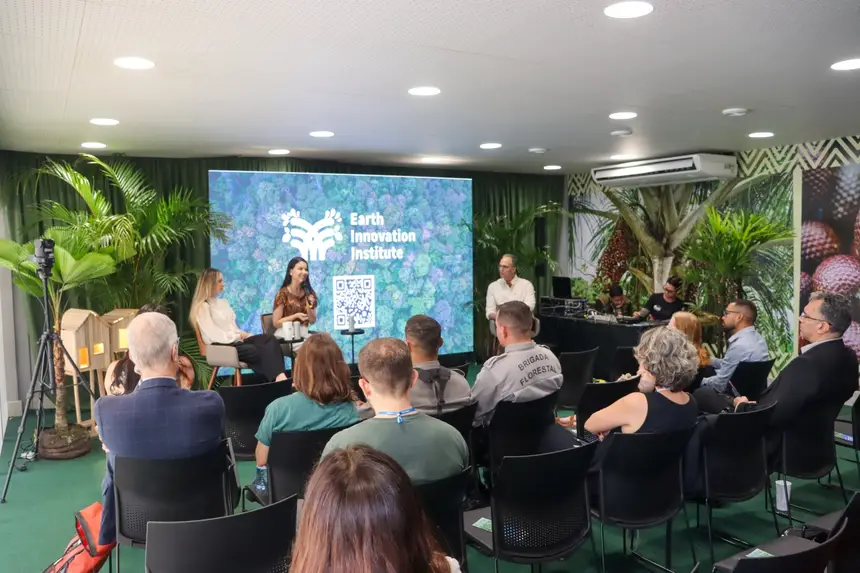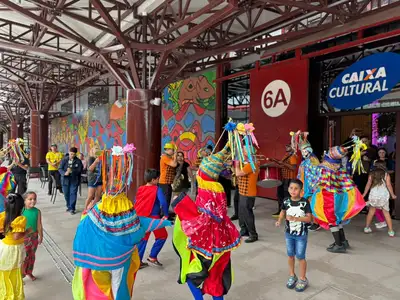State presents advances of the Jurisdictional REDD+ System and highlights the role of the productive sector at COP30
The topics were debated this Tuesday (11) in Belém, during the panel "Contributions of the productive sector to the Jurisdictional REDD+ system of Pará," held by the State government, as part of the official COP30 program in the Green Zone.

The contributions of the productive sector to strengthening the Jurisdictional REDD+ System (SJREDD+) were debated this Tuesday (11) in Belém, during the panel "Contributions of the productive sector to the Jurisdictional REDD+ system of Pará," held by the State government, as part of the official COP30 program in the Green Zone.
The meeting brought together representatives from the public sector, the business sector, and civil society organizations to discuss strategies that reconcile economic development and environmental conservation in the Amazon.
REDD+ (Reducing Emissions from Deforestation and Forest Degradation) is an international mechanism that recognizes and rewards sustainable practices capable of reducing greenhouse gas emissions while valuing standing forests. In Pará, the jurisdictional system has been structured to integrate public policies for mitigation and adaptation to climate change, with direct participation from different productive sectors.
The Deputy Secretary of Water and Climate Management (Sagac), Renata Nobre, emphasized that the engagement of the productive sector is essential to consolidate the sustainable development model proposed by the State.
"The Jurisdictional REDD+ System has been built since 2022 with an integrated approach among different sectors and beneficiaries. The main focus is to promote conservation and climate justice, prioritizing indigenous peoples, quilombolas, and extractivists - groups that engage in low-emission activities and play an essential role in forest protection. At the same time, the system seeks to include the productive sector, from family farming to medium producers, as part of the emission reduction strategy. The idea is to induce good practices and foster the transition to more sustainable models, such as agroforestry, integrated crop-livestock-forest systems, and productive restoration, which generate income and reduce environmental impacts. The goal is to transform the productive model, replacing extensive and degrading practices with sustainable technologies, supported by public policies and conservation incentive mechanisms," pointed out Renata Nobre.
The panel also presented the advances of the government of Pará in implementing the Jurisdictional REDD+ system, which provides for mechanisms of transparency, traceability, and result measurement, strengthening the State's environmental and climate governance.

Environmental policy system - during the panel, the secretary also reinforced that the Jurisdictional REDD+ system will be integrated with other environmental and land use policies of the State, valuing those who comply with the regulations and encouraging environmental regularization.
"The rules of the system coexist with other policies. Complying with the Forest Code remains a priority. What we want is to encourage producers to see the restoration of degraded areas and the sustainable use of land as an investment rather than a cost. Producing with good practices means more security, more added value, and a more stable future in the face of climate change. The State is creating this favorable environment for the productive sector to understand and definitively adopt this new model," stated Renata Nobre.
Adoption of good practices - the SJREDD+ policy seeks to integrate with existing rules, such as compliance with the Forest Code, but with a more proactive and educational approach.
The Deputy Secretary Renata Nobre added that the adoption of the Jurisdictional REDD+ is the way for the State to develop a healthy and reliable environment in the productive sector. "We cannot treat forest restoration as a cost. The idea is to show the producer that sustainable production is an investment capable of increasing security, added value, and resilience in the face of climate change. The State wants to create a favorable environment for the adoption of good practices, supporting the transition with incentives and showing that sustainability and productivity can go hand in hand — transforming conservation into a new culture of production in the field," she emphasized.

The debates reinforced that the transition to a low-carbon economy depends on joint actions between government, the private sector, and civil society, with incentives for sustainable production and responsible land use.
Text: Lucas Maciel/ Ascom Semas









